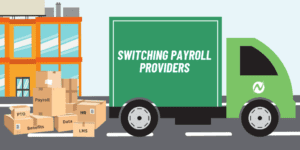Share
What do you need to know about contractors and non-exempt employees? You’re probably familiar with the terms, but what do they really mean and how do they affect the payroll process?
There’s a surprising amount of grey area with these employee classifications. Some independent contractors look a lot like employees, especially when your staff works remotely. It’s important to know where to draw the line and what happens when someone is misclassified.
Learn more about the difference between worker classifications and how they each impact payroll and taxes.
Employee vs. Independent Contractor
What’s the difference?
Some independent contractors are easy to spot. If your office IT guy only shows up once a week, and his shirt and van feature his own personal logo, then he’s clearly not an employee of your company.
On a more practical level, the arrangement with contractors is very different from employees. A contractor is paid for work completed, but the company doesn’t say how those results should be achieved. An employee also receives more training and oversight from management.
Why does it matter?
Your company’s relationships with employees and contractors are different. Employees receive benefits and are eligible for programs like unemployment. The employer also tracks metrics like clock-in time and attendance for employees.
If workers being paid as contractors are actually treated and managed like employees, then it could create significant financial and legal problems for your company.
How do you differentiate?
The IRS distinguishes between types of workers by looking at three main factors:
- Behavioral control
- Financial control
- Relationships
A high level of behavioral control suggests that a worker is an employee. Contractors receive little-to-no training. They are judged by their results, rather than methods or hours of input.
Financial control reflects how contractors are generally responsible for their own expenses. They are also free to work for several companies simultaneously. Employees generally receive hourly pay or a salary, while contractors are more likely to send invoices for completed tasks or a contracted period.
The relationship with employees is more permanent, rather than tied to the duration of a project. Independent contractors are less likely to provide services that are key elements of the business.
How does the classification affect payroll taxes?
When processing an employee’s payroll, the employer has additional responsibilities. The employer will hold back part of the employee’s pay to cover:
- Income taxes
- Social Security
- Unemployment taxes
- Medicare taxes must also be covered
For independent contractors, a 1099 tax form is sufficient, and it’s up to the contractor to pay their own self-employment tax.
What happens when an employee is misclassified?
Some employers would prefer to classify workers as contractors in order to avoid paying benefits and taxes. If workers believe they have been misclassified, then the workers can report the company to the IRS.
If the company cannot justify its classification of workers as contractors, then the company might be found liable for employment taxes. The Voluntary Classification Settlement Program (VCSP) provides a way for qualified businesses to reclassify workers without paying the full rate on employment taxes.
Exempt vs. Non-Exempt Employees
What’s the difference?
Exempt employees are not entitled to minimum wage or overtime pay. For example, administrators who collect a salary instead of hourly wages aren’t eligible for overtime pay during the weeks they work extra-long hours.
The Fair Labor Standards Act (FLSA) sets national standards for minimum wage and overtime pay. Your state and local regulations may include additional requirements.
Why does it matter?
Most companies wouldn’t try to “get away” with paying hourly workers less than minimum wage. Not only would it be unethical to short-change employees, but also the potential consequences would outweigh any short-term financial benefit.
When the wrong employees are classified as “exempt,” it can look to outsiders like the company is trying to avoid paying employees fairly.
How do you differentiate?
Job title and salary payments aren’t enough to determine whether an employee is exempt. The FLSA expects that the salary of exempt employees must be at least $684 per week.
“White-collar” positions that might be exempt include the following categories:
- Executive
- Administrative
- Professionals
- Computer professionals
- Outside sales employees
Each category has several “tests” that the FLSA uses to confirm whether a specific worker can be considered exempt.
Additionally, certain kinds of seasonal work and specific industries also offer special exemptions and are exempt from the FLSA overtime requirements. This includes employees at:
- Airlines
- Railroads
- Movie theatres
- Small-market radio and television stations
How does overtime affect payroll taxes?
For the most part, taxes on overtime pay are calculated the same way as regular hours. Things get a little more complicated when overtime hours push your non-exempt employee into a higher tax bracket.
Although the employee pays the same tax rate on their regular pay, they will pay a higher percentage on the overtime earnings beyond that bracket threshold. Exempt employees won’t have this problem with overtime, but bonuses and higher commission pay could have a similar effect for employees near the top of their tax bracket.
What happens when an employee is misclassified?
When employees are misclassified, the company may have to pay fines and back wages. In order to prevent expensive penalties, it’s important to be proactive. Read up about the regulations in your state, checking for whether all the “test” criteria apply to any of your staff.
If the COVID-19 response led your company to develop long-term remote plans, then some teams and roles probably function differently. You’ll also want to update job descriptions as the procedures change.
Discover how Netchex’s payroll software can help ensure your employees are paid accurately and on time:
Related articles

A Comprehensive Guide to Switching Payroll Providers

Why 2024 is the Year You Invest in Payroll Software

An HR Guide to the Electronic Federal Tax Payment System (EFTPS)



